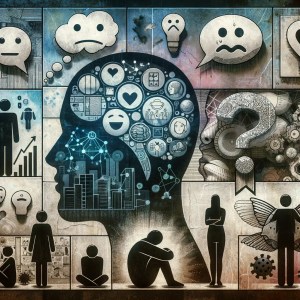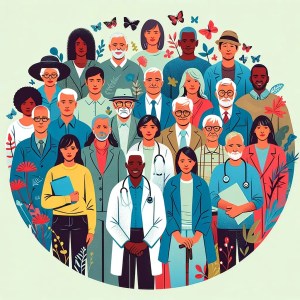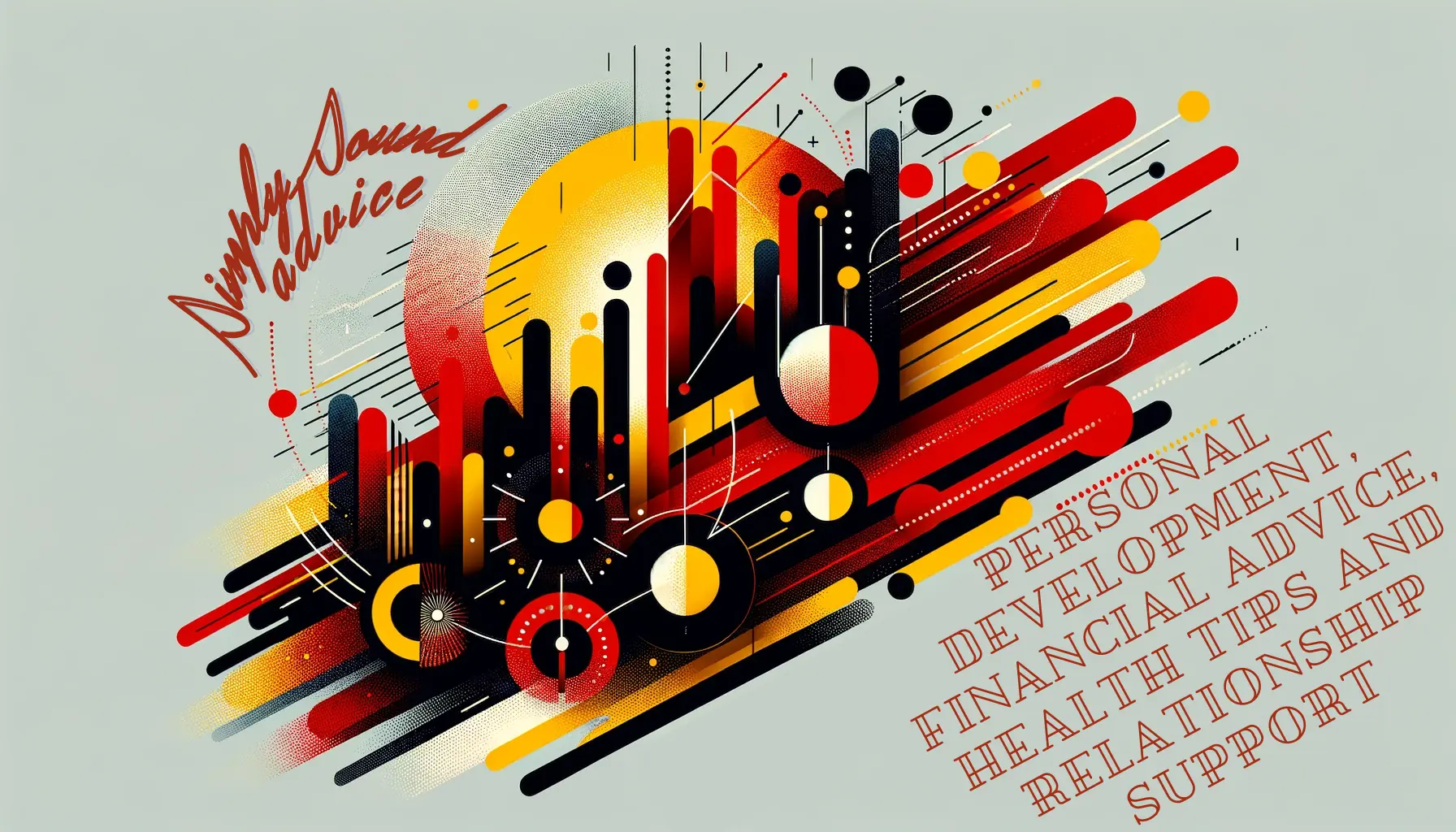- Understanding and Raising Awareness about Depression
- The Rising Tide of Depression Awareness in the Post-COVID Era
- The Stigma of Depression: A Multifaceted Challenge
- The Evolution of Public Perception
- Personal Stories: Voices that Break the Silence
- Conclusion: A Collective Effort to Transform Perceptions
- Join the Conversation at Simply Sound Society
Understanding and Raising Awareness about Depression
The Global Impact and the Stigma of Depression
Depression, far more than a mere shadow of sadness, is an intricate and pervasive mental health challenge that knows no boundaries of age, culture, or social standing. Raising awareness about depression has become more important than ever after the wake of the Covid-19 Pandemic.
Shrouded in a veil of misunderstanding, this condition often bears the additional weight of societal stigma, creating barriers that prevent many from seeking the crucial help they need. In this context, raising awareness about depression emerges as a critical mission – one that demands urgency to debunk pervasive myths and cultivate a society deeply attuned to the nuances of mental well-being. Our collective efforts in this endeavor are not just necessary but imperative in creating a world where mental health is understood, accepted, and supported.
Join us in raising Awareness about Depression!
Detailed Symptoms and Diagnosis of Depression
Before delving into the societal implications of depression, it is essential to understand its clinical presentation. According to the DSM-5, Major Depressive Disorder is diagnosed when five or more symptoms are present for at least two weeks, with one of the symptoms either being a depressed mood or loss of interest or pleasure. These symptoms include:
- Depressed mood most of the day, nearly every day.
- Markedly diminished interest or pleasure in all, or almost all, activities most of the day, nearly every day.
- Significant weight loss when not dieting, weight gain, or decrease or increase in appetite nearly every day.
- A slowing down of thought and a reduction of physical movement (observable by others, not merely subjective feelings of restlessness or being slowed down).
- Fatigue or loss of energy nearly every day.
- Feelings of worthlessness or excessive or inappropriate guilt nearly every day.
- Diminished ability to think or concentrate, or indecisiveness, nearly every day.
- Recurrent thoughts of death, recurrent suicidal ideation without a specific plan, or a suicide attempt or a specific plan for committing suicide.
To be considered a disorder, these symptoms must cause significant distress or impairment in social, occupational, or other important areas of functioning and are not attributable to the physiological effects of a substance or another medical condition.
The Rising Tide of Depression Awareness in the Post-COVID Era
Explore the multifaceted aspects of the stigma surrounding depression, including its emotional, cognitive, and behavioral dimensions, and how these contribute to the challenges faced by individuals suffering from this condition. This is crucial in overcoming the stigma and raising awareness about depression.

The Complex Nature of Mental Health Stigma
The COVID-19 pandemic has thrust mental health, including depression, into the limelight, with traditional and social media amplifying discussions about mental health challenges and treatments. However, this increased visibility brings its own set of challenges, such as the potential overdiagnosis and pathologization of normal emotional states. Our recent research highlights a trend towards viewing depression and anxiety through a more intense, clinical lens.
The Stigma of Depression: A Multifaceted Challenge
This section examines the shifting public perception of depression, discussing recent studies and trends that reveal both progress and ongoing challenges in how society views and responds to mental health issues.

Changing Perceptions: The Evolution of Public Understanding
The public perception of mental health, particularly depression, has undergone significant changes in recent years. Mental health stigma, a deeply ingrained issue, involves emotional, cognitive, and behavioral components that shape societal attitudes, often leading to discrimination and social prejudice.
Recent Developments and Research
- Shifts in Stigma and Discrimination: According to a survey conducted between 1996 and 2018, there have been improvements in public beliefs regarding the causes of mental illnesses like schizophrenia and alcohol dependence, and a noted decrease in the rejection of those with depression. These changes in mental illness stigma appear to be largely associated with generational shifts.
- Cultural Factors in Stigma Creation: Cultural influences play a significant role in how mental health stigma is created and perpetuated. Evolutionary biology suggests that fear of certain individuals varies across societies, and culture dictates how we seek blame and explain differences. In many societies, factors like family, divine will, or external stressors are blamed for mental illness, as opposed to individual responsibility, which is more prevalent in Western cultures.
- Impact of Capitalism on Mental Health Stigma: The rise of capitalism has influenced societal views on mental illness, emphasizing individual autonomy and productivity. Historically, asylums were for those who were idle or non-productive, a view that has evolved but still impacts modern perceptions of mental health, especially in capitalist societies where independence and productivity are highly valued.
Recent Initiatives in Stigma Reduction
- The Lancet Commission’s Call to Action: A recent report by The Lancet Commission urges an end to all forms of stigma and discrimination against people with mental health conditions. The report highlights the importance of including voices of those with lived experiences and recommends interventions based on social contact adapted to cultural contexts.
- Effective Anti-Stigma Programs: An umbrella review of over 200 articles revealed that anti-stigma programs are most effective when they involve people with lived mental health experiences and when target groups are consulted on content and delivery. Sustained efforts over time are crucial for the success of these programs.
- National Initiatives for Stigma Reduction: A national initiative led by Huntsman Mental Health Institute, along with other organizations, aims to end the stigma around mental health and substance use disorders. The ‘Stop Stigma Together’ campaign involves establishing metrics, building infrastructure for best practices, and creating outreach plans to connect with underserved communities.
The Evolution of Public Perception

Personal Narratives: Breaking the Silence
Recent studies reveal mixed patterns in the public’s understanding of depression. While there’s a growing acceptance of biomedical causes of mental illness, this has not translated uniformly into reduced social rejection. However, there’s been a notable decrease in the stigma associated with major depression since 2006, indicating progress in changing attitudes towards this condition.
Personal Stories: Voices that Break the Silence

A United Front: The Role of Community and Policy
Public figures and celebrities sharing their experiences with depression have significantly contributed to destigmatizing the condition. Personal narratives from the likes of Cara Delevingne and JK Rowling highlight depression’s impact and the importance of open discussion, encouraging others to seek help without shame.
Conclusion: A Collective Effort to Transform Perceptions
Breaking the Stigma of Depression
In the quest to destigmatize depression, our combined efforts – spanning from individual compassion to community support and policy reform – are indispensable. Elevating the discourse on depression and actively dismantling its associated stigma cultivates a society rooted in deeper understanding and empathy. This unified movement not only offers a lifeline to those battling depression but also weaves a richer tapestry of human connection and mutual respect in our communities. As we embark on this transformative path, we pave the way for a future where mental health is not a shadowed taboo but a shared responsibility, championing inclusivity and emotional well-being for all.

Join the Conversation at Simply Sound Society
If you’re looking for a supportive community to discuss mental health, wellness, and related topics, join us at the Simply Sound Society. Our forum offers a safe space for sharing experiences, seeking advice, and connecting with others who understand what you’re going through. Whether you’re looking to learn more about depression, share your own experiences, or simply find a community that gets it, Simply Sound Society is here for you. Join the conversation today and become part of a community that cares. Let’s begin Raising Awareness about Depression anytime we can!
We hope you enjoyed this article: “Breaking the Stigma: The Critical Role of Raising Awareness about Depression”. Please feel free to share how we are doing!















